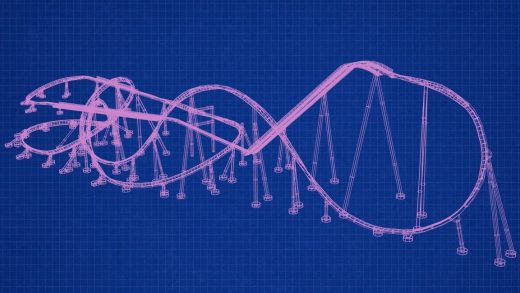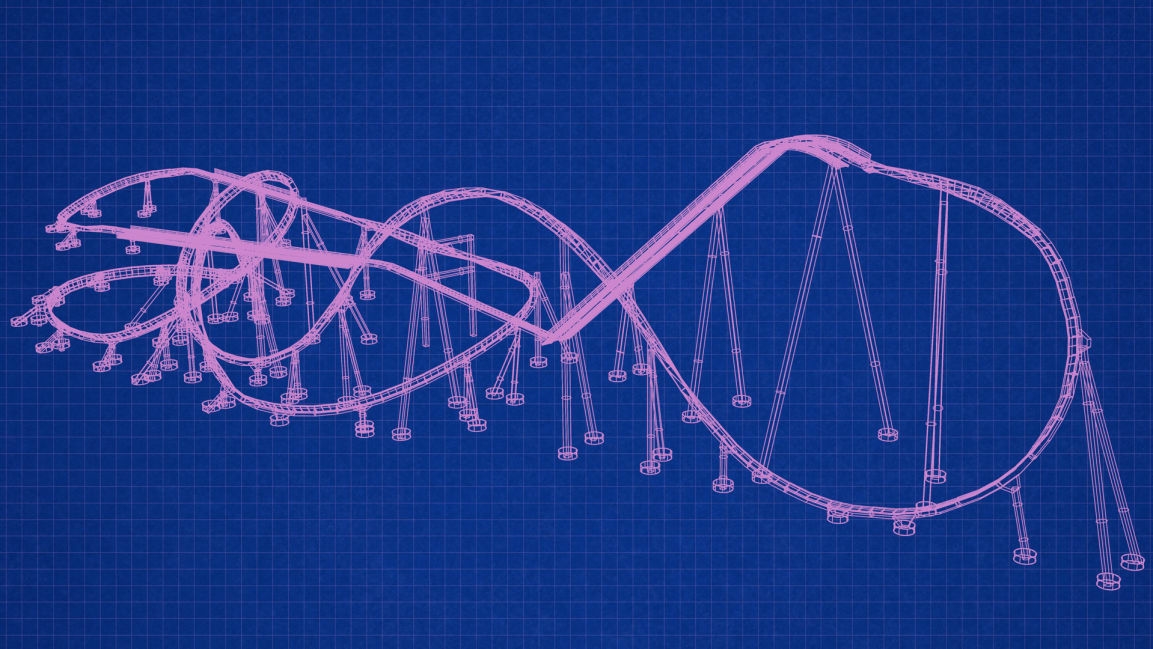What I learned leading a team through a roller-coaster year
I was on the phone with a colleague last week, going over our year in review. It’s an activity I normally look forward to but which now gave me pause as I recalled the many real struggles we’ve faced as a company since March.
This year has been uncharted territory for us all. We’ve had to improvise on the fly for months on end, use up every ounce of resilience we have, and continue to inch forward even as the deck has been stacked against us.
Yet, somehow, despite what we anticipated, our review showed something unexpected: growth.
I ended that call remembering a quote by Satya Nadella that has always stuck with me: “The way I measure my life is, Am I better than I was last year?” This seems like a trick question. It’s a luxury to say any of us has done more than simply survive the course of this pandemic.
Yet, when I refer to growth I’m not talking about conventional success metrics. For me, the biggest thing to come out of these trying times has been this: agile decision-making—the ability to find swift, continuous learning from our experiences and then act upon this newfound knowledge.
As I look back, I can’t help but feel a sense of gratitude for everything my team and I have learned over the past months. Now, as we head into this new year full of hope for the future, I’d like to share three strategies that have worked for me in 2020, and one I plan on ditching altogether.
First, the strategy I plan on scrapping is an “always-on mindset.”
At the beginning of this pandemic, I, like many others, was glued to my phone. I began taking calls during weekends, received work notifications outside of work hours, and deeply struggled to find balance. Workaholism is so entrenched in our culture that it’s hard to see when it’s creeping into the rest of our lives. And as we all started working remotely, those boundaries began to blur even more.
But here’s the thing—as a leader, I am setting the pace for my team. How I communicate sets the tone for how everyone else does. Work addiction is an ingrained strategy for many businesses, but one we should root out and leave behind to create an environment that prioritizes well-being. Here are three strategies I’m keeping for 2021.
Be an anchor to your team
Like many companies, in the first months of this crisis we were forced to do a major overhaul of how we normally do things. Keeping morale high while the majority of us worked from home and creating a safe environment for my team took center stage. I did this by maintaining open communication, encouraging my team to share their opinions and concerns regularly, and cultivating a sense of trust where they could come to me for support. In taking steps to keep employees more engaged, I was able to combat burnout and isolation.
Continuously reassess how you work
At my company, JotForm, we are always trying to find ways to make our users’ lives easier. During the onset of this pandemic, for example, we chose to offer free accounts to first responders, healthcare workers, and nonprofit organizations because we believed it was the right thing to do. But in making that decision, we were also able to learn more about our customers’ needs and how we can best support them.
I like to think of myself as a simple man. I’m not constantly trying to reinvent the wheel or become the next Steve Jobs. But what I am is someone who values continuous improvement over fast results. To me, agile decision-making comes down to always reassessing the way you work and adjusting accordingly.
Embrace change and focus on meaning
Two major things happened to me this year that gave me a perspective shift. The first being the release of our latest product: a spreadsheet tool we spent three years arduously working on, dubbed JotForm Tables. It’s something I’m extremely proud to have been a part of, and seeing it out in the world has brought me great joy.
The second was much less joyful—being hospitalized for COVID-19.
These were polar-opposite experiences. But they taught me something equally valuable: Joy and hardship will eventually pass—it’s what we learn in the process that defines us. Spending three years working with a great team and building something to help many people gives me meaning. Similarly, spending my time at the hospital reflecting on what’s most important is something I’ve found meaning in as well.
Like most people, I’ve done a lot of soul-searching this past year. Embracing change has been the hardest yet most necessary lesson of them all, because it’s taught me to look beyond my immediate circumstances. It’s also taught me to seek out something far more essential: fulfillment.
So, to answer that earlier question of, “Am I better than I was last year?” I sincerely hope so.
As Nadella puts it, “The best work happens when you know that it’s not just work, but something that will improve other people’s lives.”
I hope that the lessons I’ve learned this year will stay with me long after this pandemic passes, and will help shape the decisions I make going forward. What I know for sure is that I can’t think of anything more meaningful than spending quality time with my family and feeling like what I do each day ties into the greater good.
Aytekin Tank is the founder of JotForm, a popular online form builder. Established in 2006, JotForm allows customizable data collection for enhanced lead generation, survey distribution, payment collections, and more.
(11)



